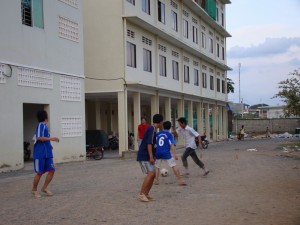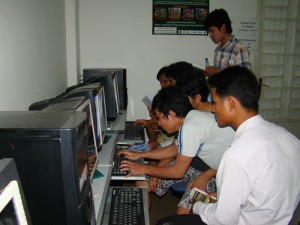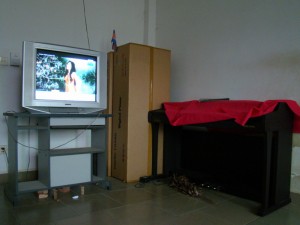Kelly Kaplan, one of Student Blog readers, has just sent me an article which I hope all of you also like to read it. I’ve posted the full article here, and if you’d like to read from the original site, feel free to click the link at the end of the post. Cheers,
You can find just about anybody on Facebook these days. People are becoming Facebook friends with old classmates, long lost cousins and the neighbor across the street. Teens especially seem to have a tendency to add almost everyone to their friends list that asks. So, if one of their teachers should send them a friend request, they’re likely to accept it. If they randomly came across a teacher’s profile on Facebook, they might also send a friend request too, without thinking much about it. A teacher, however, should give the situation some consideration. There are some very good reasons why a teacher should NOT be Facebook friends with their students.
- Privacy – The teacher’s privacy and the student’s privacy are compromised when they become Facebook friends. A student (and that student’s friends) may learn things about their teacher that they otherwise wouldn’t have access to. This could be detrimental in the class setting.
- Harassment – Again, this can go both ways. If the relationship between the teacher and the student is not a positive one, or deteriorates in the classroom, Facebook connections could be used to harass one another outside the confines of the school building.
- Work vs Home – Teachers often had a hard time drawing a line between work and home. Since Facebook would be something they would use more for their personal lives than their work, becoming Facebook friends with students just further blurs that already fuzzy line.
- Favoritism – Since teachers have many different students each day, if they were Facebook friends with some of their students and not others, they would likely be accused of showing favoritism to those students they had befriended on Facebook.
- Intimidation – Some students might see a teacher’s Facebook friendship intimidating. They may be hesitant to accept the friendship because of not wanting their teacher to be privy to their conversations with friends. At the same time, they may fear saying no to a friend request from a teacher, for fear that they will offend the teacher and negatively affect the teacher’s treatment of them.
- Age appropriate – Since a teacher would be an adult, there may be postings from friends on their Facebook page, which would not be age appropriate content for their students to be reading or viewing.
- Bullying – School bullies love to tease other kids about having friendly relationships with their teachers. Being Facebook friends with students may make them a bigger target for that type of bullying from other students.
- Prejudice – As much as teachers try not to allow outside knowledge affect their treatment of their students, it still can have a subliminal effect. A Facebook friendship may cause a teacher to see the student in a whole different light than they did in the classroom previously.
- Misunderstandings – Online communications are often filled with misunderstandings about what a person meant by something they typed or did online. A teacher/student friendship on Facebook could create more opportunities for these types of misunderstandings.
- Expectations – A student who has a teacher as a Facebook friend may expect special treatment from that teacher. The student may also expect the teacher to answer questions regarding assignments and homework via their Facebook friendship, that should be reserved for the classroom.
If you’re a teacher and haven’t given this situation any thought, now is the time to do so. The easiest solution is to simply make it a matter of personal policy to not be Facebook friends with any student at your school. That way, no one can be offended by your rejecting their friend request, and you can’t be put in a position that you may later regret.
14/06/2011 From: Student Blog reader Original site: 10 Reasons Teachers Shouldn’t Be Facebook Friends with Students






